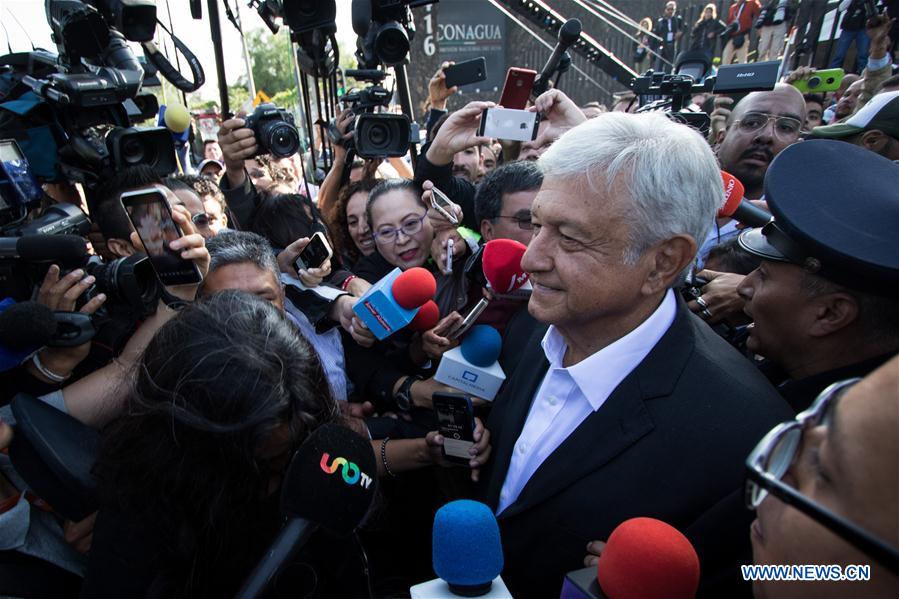
Andres Manuel Lopez Obrador, presidential candidate for the coalition "Together We Will Make History", is interviewed by media at a polling station during the presidential elections, in Mexico City, capital of Mexico, on July 1, 2018. Mexican electoral authorities on Sunday gave the green light for the country to begin the largest presidential elections in its history, with over 89 million eligible voters. (Xinhua/Francisco Canedo)
MEXICO CITY, July 1 (Xinhua) -- Mexican electoral authorities on Sunday gave the green light for the country to begin the largest presidential elections in its history, with over 89 million eligible voters.
The opening of polling stations began at 8:00 a.m. local time (13:00 GMT), and is scheduled to close at 6:00 p.m. (23:00 GMT), although in some states this schedule will be one hour later due to daylight saving time (DST).
The National Electoral Institute (INE), the body responsible for organizing the elections, plans to give an advanced preview of the results at 11:00 p.m. local time (4:00 GMT), through its Preliminary Results Program.
The INE's president, Lorenzo Cordova, said that when his organization's activities begin there will be "no room for fraud" in the elections.
Cordova explained that the installation of around 156,000 voting centers is expected, where 11 million Mexicans will act as election officials. The positions were chosen by lot to avoid the possibility of fraud, explained the INE president.
"They (the election officials) are the main guarantee of respect for the vote," he said, adding that 2.7 million representatives from participating parties will also be present at the polls.
Shortly after arriving at a polling station in the south of Mexico City, Andres Manuel Lopez Obrador, the presidential candidate for the coalition "Together We Will Make History," casted his vote and said that a quiet day is expected.
"It's a historic day, the people of Mexico will decide freely," said the candidate, also known as AMLO, who is competing for the third consecutive time in presidential elections.
"People are going to decide between more of the same or a real change," he added.
Mexicans will elect the successor to President Enrique Pena Nieto of the Institutional Revolutionary Party (PRI), as well as 128 senators, 500 deputies, eight governors and the head of Mexico City's government, as well as local legislators.
Mexico currently faces a complex situation due to the uncertainty surrounding the future of its commercial relationship with the United States, and its volatile currency. The country is experiencing its highest levels of violence on record, which has spilled over into political campaigns.















